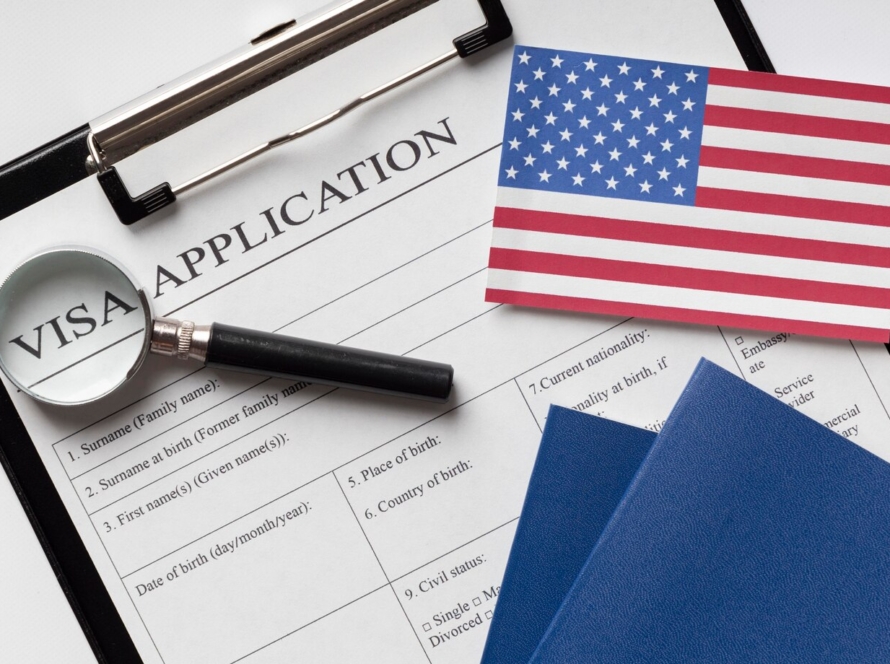Introduction
Being confronted with the threat of deportation is a deeply distressing experience for anyone living in the U.S. Whether you’re an undocumented immigrant, on a temporary visa, or have a status that has expired, facing removal can have severe personal and professional consequences. The good news is that there are legal options available to challenge or delay deportation.
Deportation, or removal, refers to the formal process where a non-citizen is ordered to leave the U.S. by the U.S. government. If you’re facing removal, you should understand that you have rights and several legal strategies that could potentially prevent deportation or result in relief. The deportation defense process can be complex, but with the right knowledge and legal support, you may be able to avoid removal and remain in the country legally.
This blog will provide you with an overview of the deportation defense process, common legal options available, and important strategies to pursue if you find yourself facing removal. Additionally, we’ll explore how legal representation can help improve your chances of success in deportation proceedings.
What Is Deportation?
Deportation is the process by which the U States government removes a foreign national from the country. Deportation can occur for various reasons, including violations of immigration law, criminal convictions, or failure to comply with visa or immigration requirements.
There are two main categories of deportation:
- Voluntary Departure: This option allows the individual to leave the U.S. voluntarily rather than face formal deportation. It can be a good option for those who qualify, as it allows for reentry into the U.S. under certain conditions.
- Involuntary Removal: This is the formal process where an immigration judge orders the individual to leave the country. This can result in a permanent ban from reentering the U.S. for a specified period, depending on the circumstances of the removal.
Legal Options and Defenses to Avoid Deportation
There are several legal defenses and options available for those facing deportation. These options may help delay or prevent removal, and in some cases, lead to permanent residency or other forms of legal status. Below are some of the most common defenses and legal options:
1. Asylum
One of the most common defenses for deportation is applying for asylum. Asylum may be available if you are at risk of persecution in your home country based on factors like:
- Race
- Religion
- Nationality
- Political opinion
- Membership in a particular social group
If you fear for your life or safety upon returning to your home country, you can apply for asylum to avoid deportation. You must file for asylum within one year of arriving in the U.S., although there are some exceptions.
If granted asylum, you will be allowed to remain in the U.S. and may eventually apply for permanent residency (Green Card) after one year.
2. Cancellation of Removal
If you have been in the U.S. for a significant amount of time and have established strong ties to the country, cancellation of removal may be an option. There are two types of cancellation of removal: for lawful permanent residents and for non-permanent residents.
- For lawful permanent residents: If you have been a permanent resident for at least five years, have been in the U.S. for at least seven years, and have not committed certain criminal offenses, you may qualify for cancellation of removal.
- For non-permanent residents: If you have lived in the U.S. for at least ten years, have good moral character, and can demonstrate that deportation would cause extreme hardship to a U.S. citizen or legal resident family member, you may be eligible for cancellation of removal.
3. Adjustment of Status
If you are eligible for a family-based or employment-based Green Card, adjustment of status may be an option to avoid deportation. If you are already in the U.S. and have an immediate relative (such as a spouse or parent) who is a U.S. citizen or permanent resident, you may be able to apply for adjustment of status and adjust your immigration status to become a lawful permanent resident without leaving the country.
In some cases, applying for adjustment of status while facing deportation may result in the deportation proceedings being put on hold or even dismissed.
4. Waivers of Inadmissibility
In certain cases, you may be eligible to apply for a waiver of inadmissibility. This can help overcome legal grounds that would otherwise prevent you from obtaining permanent residency or reentering the U.S. after being deported. Waivers can be granted for several reasons, including:
- Unlawful presence in the U.S.
- Criminal convictions (with certain exceptions)
- Fraud or misrepresentation during the immigration process
You must demonstrate extreme hardship to a U.S. citizen or lawful permanent resident family member if you seek a waiver of inadmissibility.
5. Withholding of Removal
Withholding of removal is a form of relief that may prevent deportation if you can show that you are at risk of persecution in your home country. This relief is similar to asylum but has stricter standards for eligibility. If granted, you will be allowed to stay in the U.S. but will not be granted permanent residency.
This relief can be especially helpful if you fail to meet the requirements for asylum but are still at risk of harm if you are forced to return to your home country.
6. Deferred Action
Deferred action is a temporary halt to deportation granted by U.S. immigration authorities. It is often used for individuals who may not have a clear legal status but are in certain categories, such as children of undocumented immigrants, or those who were brought to the U.S. at a young age. Deferred action does not provide permanent status, but it does allow individuals to remain in the country and may make them eligible for work authorization.
Some notable examples of deferred action programs include DACA (Deferred Action for Childhood Arrivals), which protects certain undocumented individuals who arrived in the U.S. as children.
7. Voluntary Departure
If you’re eligible, voluntary departure is an option where you can leave the U.S. on your own terms rather than being forcibly deported. Voluntary departure can be granted by the immigration judge, and in some cases, it allows you to return to the U.S. in the future (depending on your immigration history and circumstances).
Choosing voluntary departure may also avoid the permanent bars to reentry that come with formal deportation.
The Deportation Defense Process
The deportation defense process can be lengthy and complicated, involving multiple legal steps. Here’s an overview of the typical process:
1. Notice to Appear (NTA)
The deportation process typically begins when the U.S. government issues a Notice to Appear (NTA). This document outlines the charges against you and sets a date for your first hearing in immigration court.
2. Immigration Court Hearing
Once the NTA is issued, you’ll need to attend hearings in immigration court, where an immigration judge will determine whether you are eligible for deportation relief. During these hearings, you or your attorney can present evidence and argue your case for relief.
3. Appeals Process
If the immigration judge rules against you, you may be able to appeal the decision to the Board of Immigration Appeals (BIA). If necessary, you can also request a review by the federal court system.
4. Final Decision
If all avenues of relief have been exhausted, the judge may issue a final deportation order. However, with the right defense strategy, it’s possible to delay or even reverse this decision.
How an Attorney Can Help
Deportation defense is a complex legal field, and having an experienced immigration attorney is crucial for success. An immigration lawyer can:
- Evaluate your case: Assess your eligibility for different forms of relief.
- Guide you through the process: Help you understand the steps in the deportation defense process and prepare necessary documentation.
- Represent you in court: Handle hearings, motions, and appeals, ensuring that your case is presented in the best possible light.
- Maximize your chances: Increase the likelihood of a successful outcome, whether that’s a favorable ruling or a delay in deportation.
Conclusion
Facing deportation is undoubtedly one of the most stressful situations a person can experience. However, it’s important to remember that you have rights and that there are multiple legal avenues available to defend yourself against removal. Whether you seek asylum, cancellation of removal, adjustment of status, or another form of relief, the U.S. immigration system provides options for those who are eligible.
It’s essential to act quickly and consult with an experienced immigration attorney to explore your options. With the right legal strategy and guidance, you may be able to avoid deportation and stay in the U.S. legally.
FAQs
Q1: What is the difference between asylum and withholding of removal?
Asylum is a form of protection for individuals fearing persecution, while withholding of removal offers similar protection but with stricter requirements and no pathway to permanent residency.
Q2: How long does the deportation defense process take?
The deportation defense process can take several months or even years, depending on your case’s complexity and the court’s backlog.
Q3: Can I apply for a Green Card while facing deportation?
Yes, depending on your situation, you may be eligible to apply for a Green Card through family or employment-based petitions while your deportation case is ongoing.
Q4: Can I stay in the U.S. while my deportation case is pending?
Yes, if you are granted relief like a stay of removal, voluntary departure, or deferred action, you may be able to remain in the U.S. while your case is pending.
Q5: Can I appeal a deportation decision?
Yes, you can appeal an unfavorable decision made by the immigration judge to the Board of Immigration Appeals (BIA) and, in some cases, to the federal courts.


